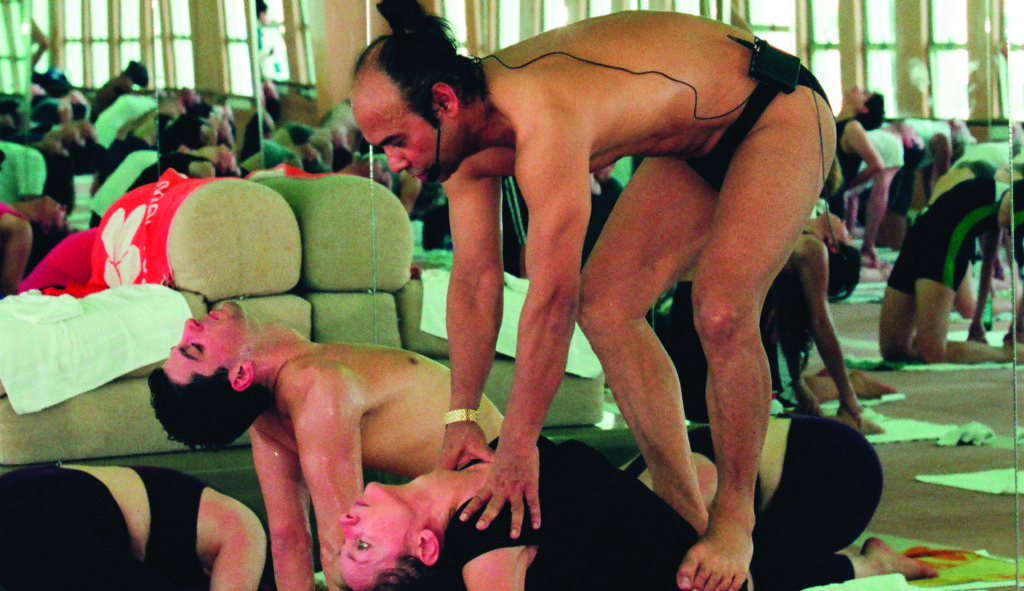Eva Orner’s directing credits include “The Network,” “Chasing Asylum,” and “Out of Iraq.” She’s also produced many films, including “Taxi to the Dark Side,” for which she won the Academy Award for Documentary Feature.
“Bikram: Yogi, Guru, Predator” will premiere at the 2019 Toronto International Film Festival on September 10.
W&H: Describe the film for us in your own words.
EO: “Bikram” tells the story of the dramatic rise and fall of the controversial founder of hot yoga, Bikram Choudhury. Arriving in Beverly Hills from Calcutta, India in the early 1970s, Choudhury quickly cultivated a celebrity following and built a global fitness empire that furnished him with extreme wealth.
But by the 2010s, as numerous sexual abuse allegations emerged and stories of his aggressive, cult-like training environment surfaced, the lawsuits started to mount, and Choudhury’s unorthodox teaching style became front-page news.
“Bikram” shines a light on the stories of the women who took him down and explores the contradiction of how this healing discipline could simultaneously help and hurt so many.
W&H: What drew you to this story?
EO: This is a pre-#MeToo/#TimesUp story being told in a post #MeToo/#TimesUp world. I think it’s important to expose men in powerful positions who got away with sexual abuse and rape.
We need to examine how this happens, what costs there are for the brave women who speak out, and how the legal system fails women.
W&H: What do you want people to think about when they are leaving the theater?
EO: I hope they are outraged and inspired to take action. And that more women in similar situations will be emboldened to stand up and speak out.
W&H: What was the biggest challenge in making the film?
EO: It’s always difficult convincing people who have suffered through trauma to retell their stories, and I’m eternally grateful and in awe of the courageous women who appear in the film. This film is for them.
W&H: What’s the best and worst advice you’ve received?
EO: Best: I had been producing for over 15 years when my friend, the late filmmaker John Singleton, repeatedly suggested, “You should direct.”
Worst: “You should direct.” When I became horribly ill in Afghanistan while directing my first film that resulted in 10 days in the hospital, two bouts of pancreatitis, and two years of sickness.
W&H: What advice do you have for other female directors?
EO: Make films. Find mentors. Be strong. Don’t give up. Support other women in the industry.
W&H: Name your favorite woman-directed film and why.
EO: So, so many. “Harlan County, USA” by Barbara Kopple is a favorite. Anything by Agnès Varda. And returning to my antipodean roots, I have to name Jocelyn Moorhouse’s “Proof” as an all-time favorite film, and Jane Campion for everything.
W&H: What differences have you noticed in the industry since the #MeToo and #TimesUp movements launched?
EO: I think due to the work on gender parity in the film business, there is definitely more interest in female directors, which is a very good thing. We still have a very, very long way to go.







